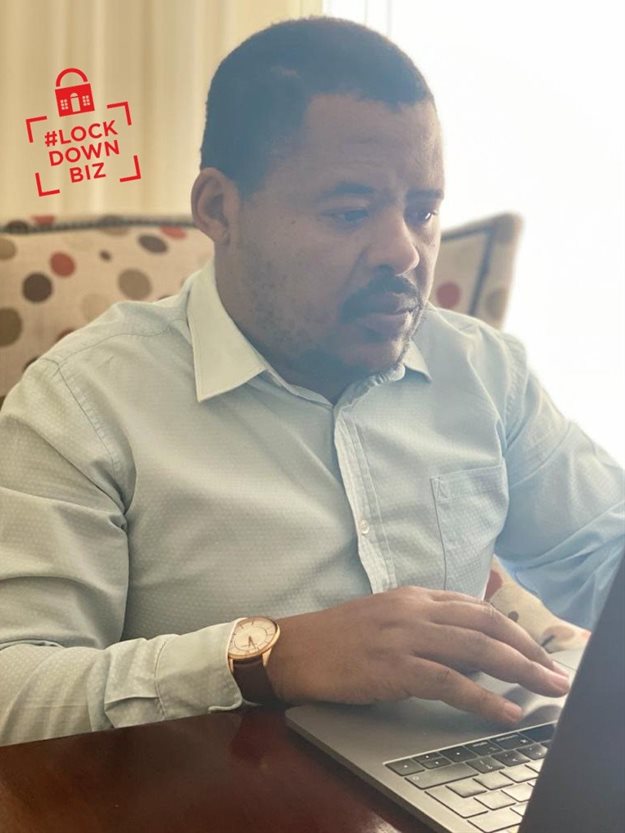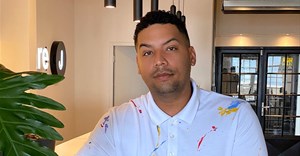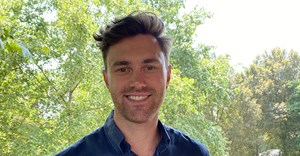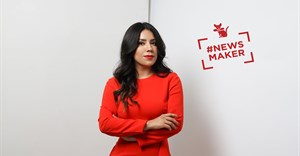Trending




 Sabre EMEA 2024 Awards: Razor PR, Retroviral top SA agenciesDanette Breitenbach
Sabre EMEA 2024 Awards: Razor PR, Retroviral top SA agenciesDanette Breitenbach
Elections 2024
Jobs
- Show Producer Johannesburg
- Fabric Weaving/Looming QC Technician Ga-Rankuwa
- Receptionist/Administrator Intern Edenvale
- Capital Equipment Sales Representative Cape Town
- Sales Consultant Bushbuckridge
- Technical Sales Representative Johannesburg
- Packaging Design Lead Cape Town
- Graphic Design Berea
- Senior Graphic/Digital Designer Cape Town
- Copywriter Cape Town
#LockdownLessons: Digital is no longer cool, it's necessary
We chatted to Tshepo Sefotlhelo, CEO of Vuma Reputation Management to get his take.

What was your initial response to the crisis/lockdown and has your experience of it been different to what you expected?
Our initial response to the pandemic was to introduce working remotely effective 24 March. This was before the President announced the official lockdown. The week prior, we were testing our systems and tools to make certain that we would be in a position to maintain our service levels to our clients. We also used that period to communicate these developments with our clients and assure them that it would not affect our ability to deliver on their needs. Given what was happening globally, we anticipated that there would be a lockdown.
Comment on the impact of the Covid-19 pandemic on your company or economy as a whole.
There has been an impact on our business due to some of our clients operating in sectors that have been affected by the pandemic. This meant renegotiated terms of engagements in some instances. For example, moving away from a retainer cost model to project-based work.
How is your company responding to the crisis?
In addition to working remotely, we engaged all of our clients to repurpose their respective plans in dealing with the new challenges the pandemic has brought to their stakeholders, particularly their employees and clients.
Comment on the challenges and opportunities.
Challenges are that revenue has been impacted and working remotely is not for everyone. Opportunities are that clients who have believed in our council are looking to us for advice in terms how they should communicate during these times, with purpose, sensitivity and empathy, while seeking to remain financially viable.
How has the lockdown affected your staff? What temporary HR policies have you put in place regarding remote working, health & safety, etc.?
Given that we introduced working remotely earlier than the official lockdown, we anticipated that this would be a necessity to protect our employees and clients. We have not had to worry too much about employee safety, but more about their well-being, because being on lockdown has come with challenges.
After some time you get tested mentally and emotionally, particularly those who live alone. As such, before our virtual meetings start we do an individual check-in with everyone, where they can vent some of their frustrations or just share how they are coping from a well-being perspective. We have also encouraged those who need to, to make use of our employee wellness service should they require it. In terms of our HR policies, we are still reviewing them in response to the new normal.
How are you navigating ‘physical distancing’ while keeping your team close-knit and aligned and your clients happy?
We are ensuring we stay connected with our clients and employees. We have regular check-ins with clients making sure we stay on top of new information relating to Covid-19 and then presenting solutions that take them and their business into consideration.
How have you had to change the way you work?
Working remotely has meant that we invest in connectivity more than ever before, such as issuing of company phones, significantly in increasing our data requirements and using apps such as Teams for our meetings, working on documents, and Zoom and Skype for meetings. We have also tried not to change how we work too much because if you change too much, particularly at a rapid pace, it could become overwhelming for some employees, which ends up impacting our clients.
Has this global crisis changed your view of the future of the industry in any way?
At the moment, there is a lot of uncertainty globally, so it is difficult to gauge what the future looks like, but if we had to take it at face value from a South African perspective, for the broader economy things are not looking good for the country. Remember our economy was already in bad shape pre-Covid-19. In terms of our industry, I see clients in our sector at the most senior level wanting more and more consultancy-based solutions rather than day-to-day communication support. We have also seen the resurgence of television and a surge of internet-based applications. In April, Zoom experienced a significant surge in users by 100 million. So we too have to think about how we can better support our clients to respond to that.
This means that digital is no longer the cool thing to do, but the necessary thing to do. So this means utilising webinars for clients to get their messages across, advising them on ways to keep engaged with their employees, given the challenges of job security, business sustainability, changing policies and supporting them during these times.Then the other aspect is coming up with plans and messaging of remaining relevant during these times, rather than shying away.
Any trends you’ve seen emerge as a result of the crisis?
As crisis management experts, we have seen a shift in the very essence of what constitutes a crisis itself. This has been gradual and we have seen it develop over time, with the emergence of social media, which has resulted in crises happening more frequently out in the open during the past 10 years. What was seen as a crisis previously is more of a disruption now, because a crisis today plays out in real-time out in the open.
Our threshold for what constitutes a crisis is getting higher and higher, meaning that for something to constitute a crisis, it has to be more significant, like what we are experiencing now. I don’t think anyone was adequately prepared for this level of crisis. Even crisis management plans could not have anticipated a situation where entire industries were shut down for weeks. Being prepared is something we are all taking more seriously as a result. Should something like this hit the world in the future, we will hopefully ensure we are better prepared.
What do you predict the next six months will be like?
The sector that we operate in is a fickle one because when a business is under pressure, we tend to be at the top of the list when it’s time to cut budgets, hence I say we have seen clients during this time looking for more consultancy-based support during Covid-19. This will put more pressure on management in the sector to fast-track the development of their less senior employees to get to a position of being able to consult at a high level.
However, the pressure is also on employees to develop themselves by investing in their craft and ensuring that they are remaining on top of their game and adapting themselves to this new world. For example, if you are going to consult executives, do you understand the company’s act and things like corporate governance?















